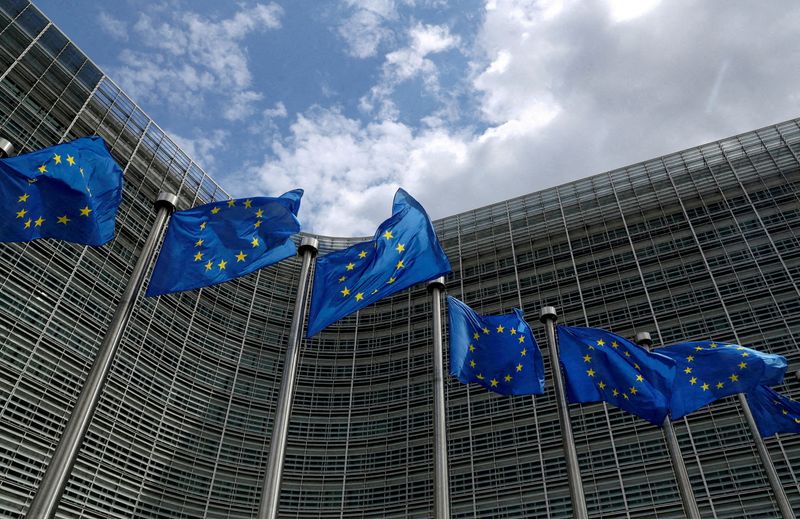By Jan Strupczewski
BRUSSELS (Reuters) - European Union leaders will push senior officials on Thursday to find legal ways to funnel proceeds from billions of dollars of frozen Russian assets into projects helping rebuild Ukraine, papers showed.
The bloc has said it froze more than 200 billion euros ($218.2 billion) of Russian central bank assets in reaction to Moscow's invasion of Ukraine in February last year. Another 30 billion euros of Russian oligarchs' private assets were also immobilised.
Leaders of member states meeting in Brussels will ask the EU's executive Commission and other bodies to press on with research into how they can put the Russian money to work for Ukraine, draft conclusions of the summit showed.
During months of debate on the issue, lawyers have said there is no legal precedent to simply take the money, and the Kremlin warned in November it would do everything it could to stop the West "plundering" its assets.
EU officials say they have been looking at alternatives, for example taking accrued interest or bond coupons or taxing such profits.
"The European Council took stock of the work done regarding Russia’s immobilised assets, and invites the Council, the High Representative and the Commission to take work forward, in accordance with EU and international law, and in coordination with partners," the draft conclusion read.
Estonian Prime Minister Kaja Kallas said Russia and its oligarchs had a legitimate claim on the frozen assets, but Ukraine also had a legitimate claim against Russia over the damage it had caused.
"It's fundamentally wrong that our taxpayers get to pay for something that we haven't caused. It has to be on Russia, it has to be on their assets," she said. Russia has not made any public
Against the background of possible legal challenges, the EU has been working to coordinate closely with the United States, Canada, Britain and Japan - the G7 - to build international consensus.
The EU also needs to establish where to keep any proceeds from the Russian assets and how to disburse them.
The sums are substantial. Belgium's Euroclear, which settles transactions and safeguards assets, said blocked coupon payments and redemptions boosted its balance sheet by 88 billion euros year-on-year by the end of March to 140 billion euros.

European Commission head Ursula von der Leyen said last week the EU executive would come up with a proposal before August on how to use the assets for Ukraine .
($1 = 0.9164 euros)